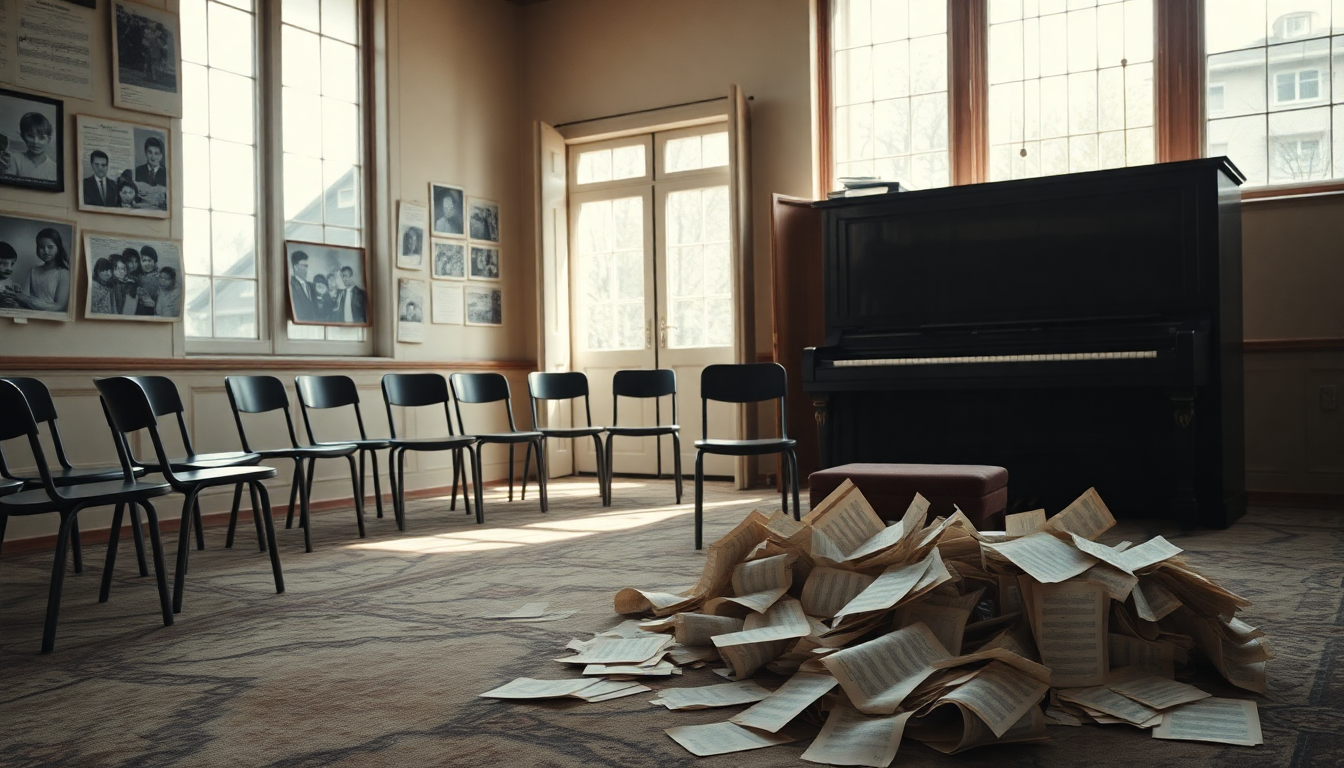Table of Contents
When it comes to cinema, few topics are as challenging yet vital as exploring trauma. The film ‘Broken Voices’, directed by Ondřej Provazník, delivers a deeply moving narrative inspired by the real-life experiences of the Bambini di Praga choir and the serious allegations against its choirmaster. This film doesn’t shy away from uncomfortable truths; instead, it shines a light not only on the victims but also on the societal complexities that accompany such tragedies.
The Context of ‘Broken Voices’
‘Broken Voices’ is more than just a film; it’s a mirror reflecting a society wrestling with its past. The story centers around 13-year-old Karolína, who dreams of joining a prestigious choir, following in the footsteps of her older sister. However, her journey is clouded by the dark actions of the choirmaster, who ultimately faced imprisonment for his abuses. Provazník is careful to present these narratives without resorting to sensationalism, instead aiming to cultivate understanding and dialogue about these sensitive topics.
One striking moment from Provazník’s own life encapsulates the complex interplay of loyalty and betrayal within the choir. While studying at FAMU, he witnessed young women singing to the very man accused of horrific crimes. This haunting contrast between beauty and horror made a lasting impression on him, driving his exploration of innocence and corruption throughout the film.
Societal Reflections and Conversations
As he navigates this sensitive topic, Provazník underscores the challenges society faces when tackling these issues. The Czech Republic, while gradually awakening to the global #MeToo movement, still grapples with deep-rooted conservatism. High-profile cases, such as those involving former lawmaker Dominik Feri and psychiatrist Jan Cimický, have sparked vital discussions, yet many societal attitudes remain complicated. For instance, some still question why victims took so long to come forward, which only adds layers to the narrative surrounding trauma.
But what is the purpose of ‘Broken Voices’? It goes beyond merely recounting a dark chapter; it prompts us to consider the broader implications of such experiences. By starting the story before the trauma, Provazník invites viewers to reflect on the nuances of victimhood and the psychological effects that follow. He illustrates how people often suppress their trauma, only to confront it later when they’re better equipped to understand its impact.
Art as a Medium for Change
While Provazník doesn’t label himself an activist filmmaker, he certainly recognizes the potential of art to spark change, however small. ‘Broken Voices’ is crafted to be accessible, especially for younger audiences, facilitating important discussions between parents and children about difficult subjects. The film serves as a tool for educating viewers about the subtle signs of unhealthy dynamics and the crucial roles of trust and communication.
In conversations with former choir members, Provazník encountered a mix of emotions; some expressed admiration for their choirmaster despite his actions, revealing a complex emotional landscape where love and trauma coexist. This duality is key to understanding the aftermath of trauma—how it can be intertwined with treasured memories yet overshadowed by pain.
The film deliberately avoids graphic depictions of the trial or its consequences, instead choosing to focus on the roots of such behaviors. By drawing on narratives from memoirs like Vanessa Springora’s ‘Consent’ and documentaries exploring notorious figures, Provazník aims to shed light on the psychological entanglements that complicate the issue of abuse.
Conclusion: The Path Forward
Ultimately, ‘Broken Voices’ stands as a testament to the resilience of those affected by trauma. It encourages viewers to reflect on their own experiences and promotes a culture of openness around difficult conversations. As Provazník aptly points out, building trust within families and encouraging people to speak out when they encounter troubling situations is essential. While rooted in the specific narrative of the Bambini di Praga, this film resonates with a universal truth: the journey through trauma is intricate, but through dialogue and understanding, healing can begin.


